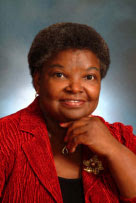MYTH—It is a widespread myth that borrowers who are in default have no money and therefore no way to pay for help with addressing their default situation. The argument is frequently the logic for non-profits who insist that it is somehow immoral for a borrower to be asked to contribute to the service which they need. While I support non-profits, I have never bought into this false thinking. I believe that most folks appreciate more what they have contributed to and think that non-profits could offer more services to more people if they adopted a sliding scale which allowed clients to pay according to income level with a provision for totally FREE service in situations which clearly warranted such.
REALITY—many borrowers do have money—SOME money. No matter what circumstance caused the default, many borrowers not only have some money but are both willing and anxious to find someone whom they feel can help them with their mortgage mess and are both able and expect to pay for that service. This is especially true of middle to upper income borrowers who are used to paying for any service they get and are more likely to be suspicious of service offered for FREE. As an example, the borrower in a $500,000 house who has been laid off is likely to have resources to make the mortgage payment for a while before savings, retirement and/or other accounts are depleted. This individual is looking for an attorney or similar professional with knowledge of the foreclosure process, possible impact on his taxes, etc to help with the tough decisions which have to be made. Additionally, this same borrower, while highly competent at his/her job is acutely aware that they are unprepared to negotiate for themselves in this arena. To my point, I recently personally coached a highly skilled attorney through the loan modification process and the mandatory meeting with the Lender shop which has been instituted by law in the state of Indiana. The attorney was able to do what I told her to do but she did not know WHAT to do or WHY certain things were important because this is not her area of expertise. She needed professional coaching to deal with the bank world. She is one of several consumers whom I have personally coached through the process and helped them to be able to represent themselves since I am not in a position to do so.
SOLUTION—Trained, competent foreclosure intervention counselors—who work for a fee, to represent those who cannot get representation at HUD approved or other such agencies. There is room in the market place for both. There are consumers at both ends of the spectrum who need appropriate, professional help. Recently I was asked by an upper income borrower what exactly I do other than the training for REALTORS. I explained that I am a consumer advocate and try to reach borrowers for whom I can provide FREE workshops or materials to in order to help make a difference in their situation. His question then was ”Why are you discriminating against people who have money?” The question caught me off guard and caused me pause. The truth is that I come from a background of poverty and I have a commitment to make as much of a difference as I can for those who are struggling. Does that mean I should not share my knowledge with those who can afford to pay for it?
It struck me as a novel concept. It resulted in a paradigm shift.





No comments:
Post a Comment